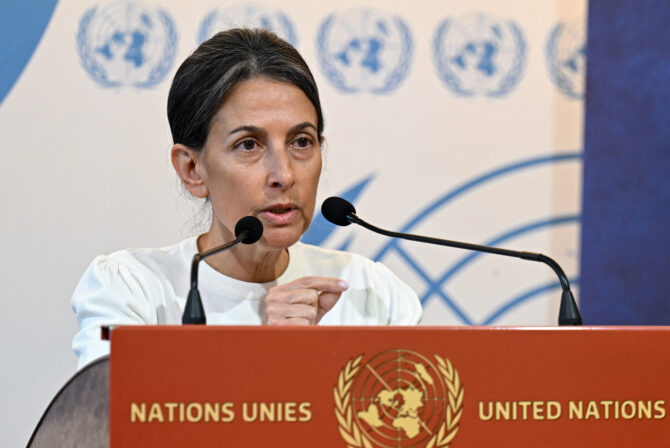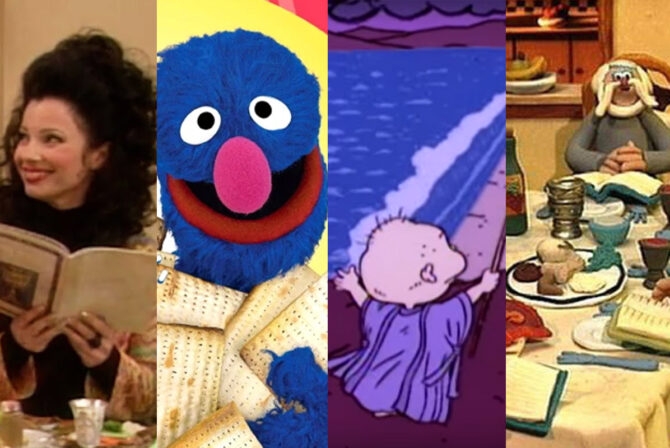This article is part of the Here. Now. essay series, which seeks to de-stigmatize mental health treatment, and improve accessibility to treatment and support for teens and parents in metropolitan New York.
Jewish mothers worry; it’s not just a stereotype, it’s the truth—truth in the same way the sun rises in the east and sets in the west and there are 50 states in our fine union. It’s just who we are, and there’s no shame in it.
Which is why I am here today to declare that I have officially reached “Jewish mother status.”
In fairness, I’ve been a Jewish mother since I became a mom on December 18, 2010, with the birth of my daughter Maya—but now I really feel like one.
Maya started kindergarten this past fall and though I know her to be a social, outgoing kid, she is also sometimes shy and cautious around new people. After having her in the same daycare/preschool building for five years, with the same kids who had been her besties since pretty much birth, I’d be lying if I said I wasn’t a smidge worried about how the transition to kindergarten would go—especially since none of her friends would be attending her new school.
As it turned out, I was wasting my energy. The first day of school, she came home and excitedly informed me she had a new best friend. I was shocked—can “best friend” status really be achieved in a day? I suppose if you’re 5, it can.
“So, how did you two become friends?” I asked over dinner that night. It’s been decades since I was a little girl making new friends in elementary school; I didn’t remember how it all happened then, and was genuinely interested in how the kids do it these days.
“Well, she came up to me and said, ‘Do you want to play house?’ I said, ‘Yes’. And now we’re best friends,” she grinned.
(Insert a not-spoken-but-inferred “Duh, Mommy.”)
Five months into the school year, they are, indeed, each other’s BFF (their words, not mine), so maybe it is that easy. I don’t know if this will be a life-long best friend or a phase (the former would be awesome!), but the fact that she’s making new friends at school, at gymnastics, at soccer, and at Hebrew School is a thrill to see—and gives me hope… and reason to check my worrying-Jewish-mother-mode at the door.
Of course, that’s easier said than done. In many ways, it’s odd to me that I had been so concerned about Maya adjusting and making new friends, because if you knew my daughter, you’d know she is a very social kid—very much a queen bee, in the best sense of the word.
The only rationale I can come up with is that it was my own childhood insecurities kicking into overdrive: the deep fears I had of dropping my lunch tray in the cafeteria and being laughed at, or not having anyone to sit with. In reality I was lucky—I never dropped my tray, I always had plenty of friends, and if anyone was laughing at me, it was likely because I’d said something to make them laugh—not because I was being teased. Yet the fears were there.
It became apparent to me that my worrying went beyond just stereotypical “Jewish mother worrying.” Yes, I worry about things like any parent would, but I have also struggled with general anxiety disorder since I nearly missed the bus when I was in second grade… and that anxiety has manifested itself in many ways over the years, from basic worrying about something as innocuous as being late to a party, to debilitating anxious disordered eating behaviors that caused me and my loved ones enormous agony. Years of cognitive behavioral therapy, blogotherapy, and learning coping mechanisms to help reduce my anxiety had worked for many years. But then here was anxiety rearing its ugly head once again.
I’d been unintentionally and unfairly projecting my own childhood anxieties onto my kid—and those projections needed to be nipped in the bud, stat. After all, there are enough fears in the world for children to experience on their own; I certainly didn’t need to be the source of more by peppering her with questions and potentially raising fears unnecessarily.
That being said, I do wonder whether or not my children will struggle with anxiety like their mama (as it can be traced to heredity) or if they will be like their daddy (read: the complete opposite of anxious). I’ve been sensitive to signs—not obsessed over finding them, but just on the look-out. So far, other than some typical first-born, Type-A perfectionist tendencies, I think we’re in the clear… for now. (And I hope it goes without saying: even if one of them did have anxiety, it’s not the end of the world and we’d work through it—just like I have all these years).
So instead of losing sleep over the possibility of either of my kids developing anxiety, I can focus my energies on finding other things to worry about: like if Maya is getting enough Vitamin D during this miserably cold and gray Michigan winter, or if the music she’s listening to is too loud.
You know, stuff we Jewish mothers worry about.
Read More:
Billie Lourd Opens Up About Mom Carrie Fisher & Grandmother Debbie Reynolds
I Took a Vacation By Myself And It Wasn’t What I Expected
4 Things You Should Do When Your Friend Loses a Spouse

This post is part of the Here.Now series, which seeks to destigmatize mental health,
and is made possible by UJA-Federation of New York and The Jewish Board.
You can find other educational mental health resources here.







